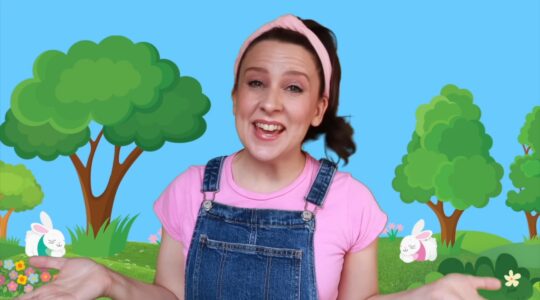PETALUMA, Calif. (JTA) — On a cool Sunday evening, Jewish campers with nervous smiles took to the stage one by one to perform poems they had composed on the theme of identity.
One girl riffed on being taunted for having “fuzzy eyebrows” and “bushy hair.” Another rhymed about being told “You don’t look Jewish” too many times to count.
If this doesn’t sound like your typical summer camp fare, it’s because Camp Be’chol Lashon has a markedly different mandate than most Jewish camps.
Nestled in the misty hills of Marin County, the northern California camp is the country’s only Jewish sleepaway camp geared to Jews of color.
“Part of the goal is to make these kids feel normal in a Jewish context,” said Diane Tobin, the founder and executive director of the camp’s parent organization, the San Francisco-based nonprofit Be’chol Lashon, which promotes racial, ethnic and cultural diversity in Jewish life.
Tobin, 61, and her late husband, the eminent Jewish demographer Gary Tobin, founded the nonprofit in 2000, three years after adopting an African-American son. Now entering its sixth season, the organization’s camp integrates traditional Jewish practice with educational activities that speak to the diversity of Jewish life around the globe.
Each morning, after the more typical fare of Wiffle ball and field sports, campers gather clues about the country they will “travel” to that day before going through “Customs” and having their makeshift passports stamped. Throughout the day, between kayaking and swimming in the pond, campers make food and crafts inspired by the particular country they are “visiting.”
During a JTA visit to the camp, campers spent an afternoon writing poems in an art room decorated with cultural items they had made, including woven baskets from Mexico and feathered raffia masks from Colombia. Aaron Levy Samuels, a New York-based black-Jewish performance poet, had flown in for the day to facilitate the poetry workshop.
Samuels, 25, whose first poetry collection, “Yarmulkes & Fitted Caps,” was published last fall by Write Bloody Publishing, said that growing up in Rhode Island, he and his brother were the only two black kids at their local synagogue. The son of an African-American, Samuels said he identified with the struggles that Be’chol Lashon campers were going through and wished he could have attended such a camp.
Maia Campbell, 14, of San Francisco, who has attended Be’chol Lashon since its founding, echoed that sentiment.
“It’s been really cool because my synagogue is basically all white people,” said Campbell, whose mother is African-American. “So I saw that there are other people like me.”

Sarah Spencer, right, the co-director of Camp Be’chol Lashon, with counselors Andrea Pressman and Reece Pressman. (Rebecca Spence)
The camp is not just for Jews of color, as evinced by one white camper’s poem about her identity as a “nerdy Jewish girl.” It’s also very much a family affair. Tobin’s son, Jonah, is a junior counselor and her daughter, Sarah Spencer, serves as the camp’s co-director.
“The kids all come with very different stories about who they are and where they’ve come to be,” said Spencer, 38, a marriage and family therapist who is also the mother of two biracial children. “Here they get to practice explaining who they are to one another and we help them to feel good about whatever that is.”
Savannah Henry, a 21-year-old counselor whose father is African-American, said that before her rabbi at Congregation Shir Hadash in Los Gatos, Calif., told her about Be’chol Lashon, she had spent a miserable summer at a more mainstream Jewish camp.
“I was the only Jew of color,” she said of her experience at a Reform Jewish summer camp in Santa Rosa. “I just didn’t connect that well.”
When she discovered Be’chol Lashon four years ago, Henry’s outlook changed completely.
“If I had been a camper here, I would have fit in perfectly,” she said. “It’s definitely made me more of a proud Jew.”
For more about Be’chol Lashon and Jews of color, go to Jewish&, a blog on JTA’s partner site MyJewishLearning.

Help ensure Jewish news remains accessible to all. Your donation to the Jewish Telegraphic Agency powers the trusted journalism that has connected Jewish communities worldwide for more than 100 years. With your help, JTA can continue to deliver vital news and insights. Donate today.





